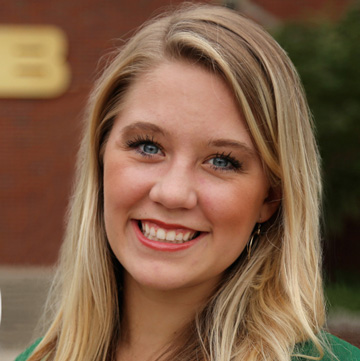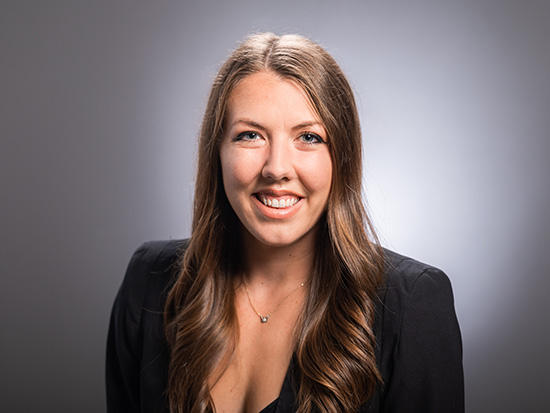Emilee Anders Brodie, a senior majoring in the Undergraduate Neuroscience Program, writes about her experiences in the program and at UAB.
I’m going to be honest. When I first heard ‘neuroscience,’ I had to look it up. I had no idea what it was, but it had my attention
 Coming to college, I wasn’t aware of all the ‘cool’ things people could do. I am from rural Alabama, and I thought if you were smart and made good grades, becoming a doctor or a lawyer were the only two options. I didn’t want to be a lawyer, so doctor it was. Unfortunately, I don’t have a cool story of how I got into neuroscience. I wanted to go to medical school and neuroscience sounded challenging, so I was sold.
Coming to college, I wasn’t aware of all the ‘cool’ things people could do. I am from rural Alabama, and I thought if you were smart and made good grades, becoming a doctor or a lawyer were the only two options. I didn’t want to be a lawyer, so doctor it was. Unfortunately, I don’t have a cool story of how I got into neuroscience. I wanted to go to medical school and neuroscience sounded challenging, so I was sold.
When I was being interviewed for the Neuroscience program, I talked to Dr. McFarland about my life plan and career goals, because I thought I knew exactly what I wanted to do. I remember him telling me I was young and that my plans may change. These words stuck with me, and I thought, “Well that won’t be me. My plans won’t change because I KNOW exactly what I want to do.” Spoiler alert: My plans did change, but it was all thanks to the opportunities I have been given through Neuroscience.
While I have decided to pursue a career in public health, I still think studying Neuroscience as an undergrad was the best choice for me. The program has given me access to some incredible faculty as mentors and advisors and I have had connections to a plethora of opportunities and programs. Early into my undergraduate career I was able to do research for a year. While I had a great mentor, I just wasn’t fully invested or sold on our project. After that experience, I thought, “Well research just isn’t for me.” My junior year I started the fast-track for a Master of Public Health. In this graduate program, we focus a lot on research (i.e. research methods, evaluation, literature reviews, etc.) along with practice. I found myself enjoying the readings and have even done some of my own searches through the literature. For my last upper level neuroscience class, I chose Social Psychophysiology where the majority of what we do is read research articles and discuss them. During the course of this class, I became really interested in HIV and the social and physiological implications of HIV stigma. Now, as the person who said “I don’t like research,” and “it’s not for me,” I am now excited to enter into another lab and begin working on a project that is looking at how stigma is associated with PrEP adherence — an opportunity I would likely not have come across with another department.
This summer I am starting the Master of Business Administration part of the dual degree MPH/MBA program. I have begun to look into PhD programs and fellowships for after graduation. At this time, I am still not entirely sure of what I want to do. As someone who has difficulty with not knowing my exact plan, I am confidently graduating in April with my degree in neuroscience knowing I have been well prepped for whatever my future may bring.


